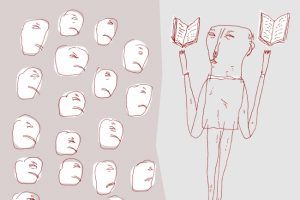Timothy Aubry in The Chronicle of Higher Education:
 However inclined by their training to vacillate, scholars in the humanities are increasingly being asked to take sides. Should they support or oppose their students’ efforts to ban a reactionary speaker from campus? Should they defend the feminist philosopher who affirms the possibility of transracial identity or join those demanding her article be retracted? Should they remove an influential writer from the syllabus because of his fascist sympathies? Should they sign the petition urging their professional organization to join the Boycott, Divestment, and Sanctions campaign against Israel? So much of academic life seems colored by high-stakes political struggles, and so many decisions large and small are now treated as gestures of allegiance to particular ideological camps and as betrayals of others. It’s difficult to even list these polarizing campus scenarios without attracting political labels.
However inclined by their training to vacillate, scholars in the humanities are increasingly being asked to take sides. Should they support or oppose their students’ efforts to ban a reactionary speaker from campus? Should they defend the feminist philosopher who affirms the possibility of transracial identity or join those demanding her article be retracted? Should they remove an influential writer from the syllabus because of his fascist sympathies? Should they sign the petition urging their professional organization to join the Boycott, Divestment, and Sanctions campaign against Israel? So much of academic life seems colored by high-stakes political struggles, and so many decisions large and small are now treated as gestures of allegiance to particular ideological camps and as betrayals of others. It’s difficult to even list these polarizing campus scenarios without attracting political labels.
Literary scholars will very likely regard this situation as nothing new. Their discipline, after all, has been insisting for decades that everything is political. As far back as 1968, a group of radical scholars sought to take over the Modern Language Association’s annual conference. Louis Kampf was arrested for taping a poster to the wall of the conference hotel announcing that “The Tygers of Wrath are Wiser than the Horses of Instruction,” and Noam Chomsky led a Vietnam War teach-in with 500-plus attendees. Then, as anyone even glancingly familiar with the culture wars of the 1980s and 1990s knows, the emphasis on politics gave birth to an attitude of suspicion toward the canon. While authors like Shakespeare and Woolf were sometimes celebrated for their works’ subversive power, many others, like Conrad, were condemned for reinforcing dominant ideologies. The urge to dethrone literary heroes on the basis of their bad politics has persisted up to the present moment, gaining strength as the Black Lives Matter and #MeToo movements have emerged. The past year witnessed an especially heated debate about how to treat Junot Diaz’s work in light of allegations that he sexually harassed several women, with many now identifying conspicuous signs of misogyny in his fiction, while other scholars have maintained that he is being scapegoated because of his ethnic background.
More here.
